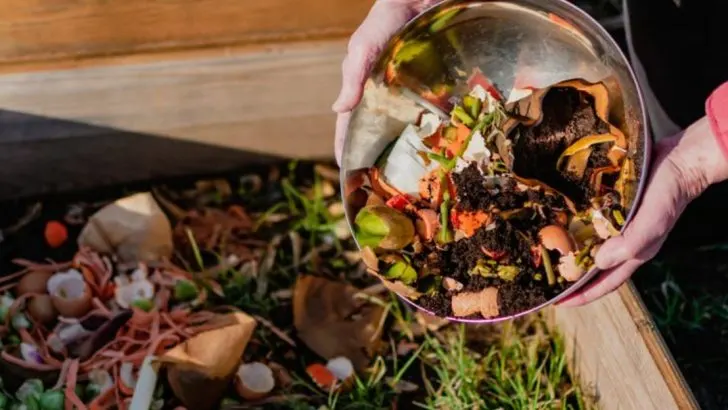If your compost pile feels more like a waiting game than a garden solution, you’re not alone. But the secret to faster, richer compost isn’t about buying fancy gear—it’s about using smart, science-backed tricks that speed things up naturally. These 15 composting hacks can help you turn kitchen and garden waste into black gold in record time.
From adjusting the carbon-to-nitrogen ratio to surprising additions like used paper towels or crushed eggshells, each tip is designed to accelerate decomposition and reduce smells. You’ll learn how to improve airflow, keep the right moisture balance, and even how layering technique impacts your pile’s speed. The best part? Most of these tricks take just minutes to apply.
Whether you’re using a tumbler, a backyard bin, or a simple heap, these methods can cut composting time in half—sometimes even more. That means faster soil improvement, better plant health, and less waste going to landfills. If you’re ready to turn scraps into soil like a pro, this list will get your bin cooking.
Chop Everything Small
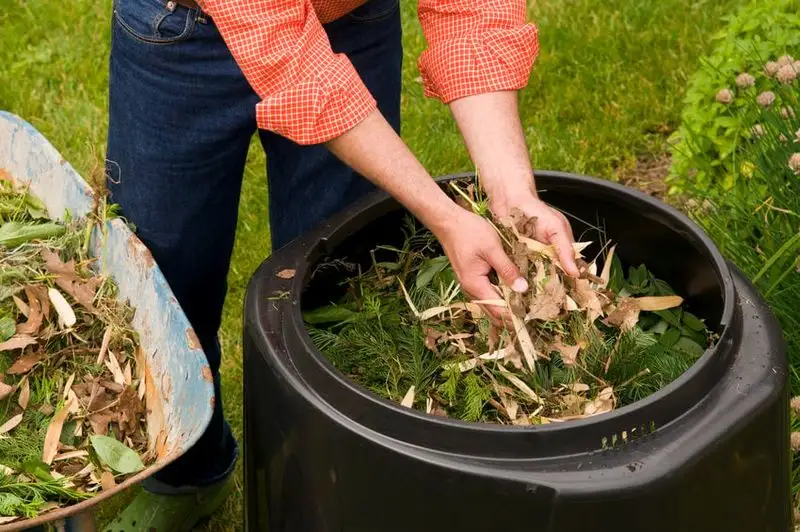
Have you ever noticed how quickly chopped vegetables cook? The same principle applies to composting. By cutting materials into smaller pieces, you increase the surface area, making it easier for microbes to break them down. This simple act can halve the composting time. Imagine your kitchen scraps turning into soil in record time! It’s a small step with a big impact, ensuring your compost remains active and efficient. Plus, it’s a great way to involve the whole family—kids love chopping fruits and veggies!
Mix Greens and Browns
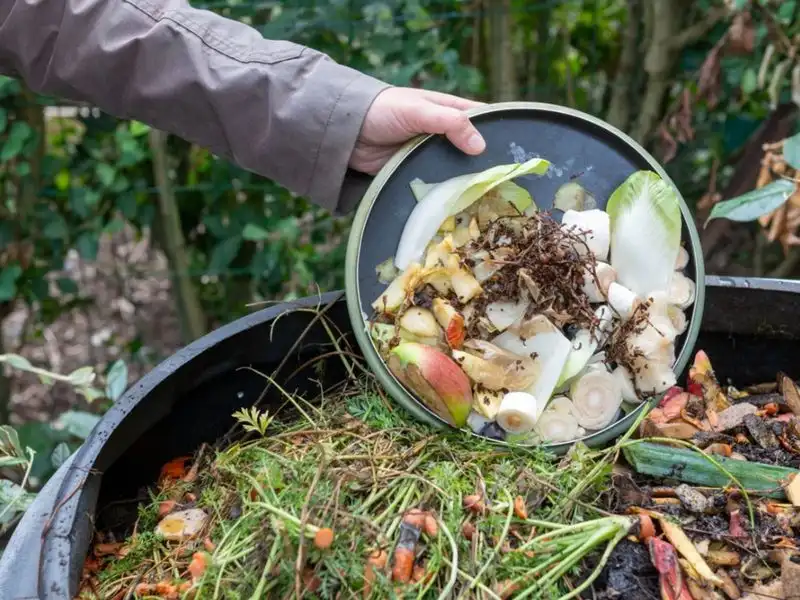
Balancing greens and browns is the secret sauce of efficient composting. Greens, like vegetable peelings, provide nitrogen, while browns, such as dried leaves, add carbon. This blend creates the right environment for microbes to work their magic. Without enough nitrogen, your compost might become sluggish. Too much of it, and you risk a smelly pile. Aim for a harmonious mix, and watch your compost transform quickly. It’s like a well-rehearsed dance, with each item playing its part. Once you nail this balance, the rest becomes a breeze.
Turn the Pile Regularly
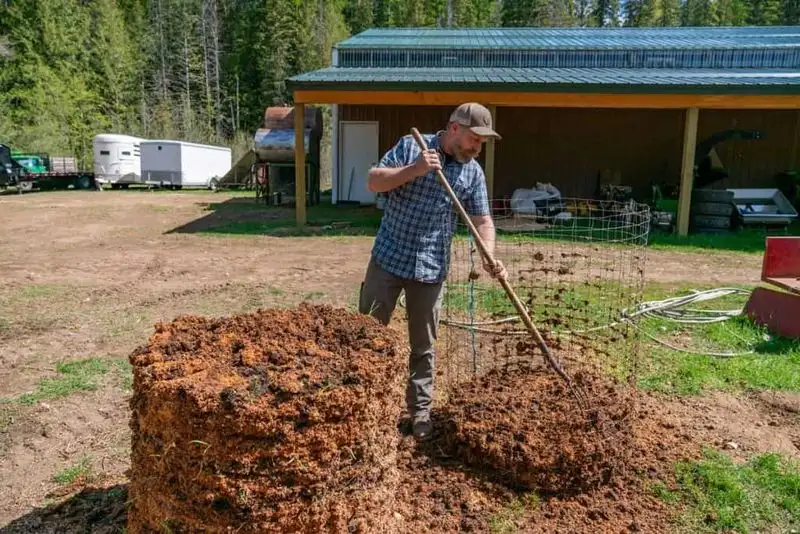
Turning your compost pile might sound like a chore, but it’s crucial for speed. This action introduces oxygen, which is vital for aerobic microbes that break down organic matter. Without it, your compost may stagnate and emit foul odors. By turning the pile weekly, you keep it aerated and thriving, ensuring faster decomposition. It’s a bit of exercise with immense benefits. Consider it your garden workout with the reward of rich, crumbly compost. The smell of fresh earth is just a bonus!
Add Water Wisely
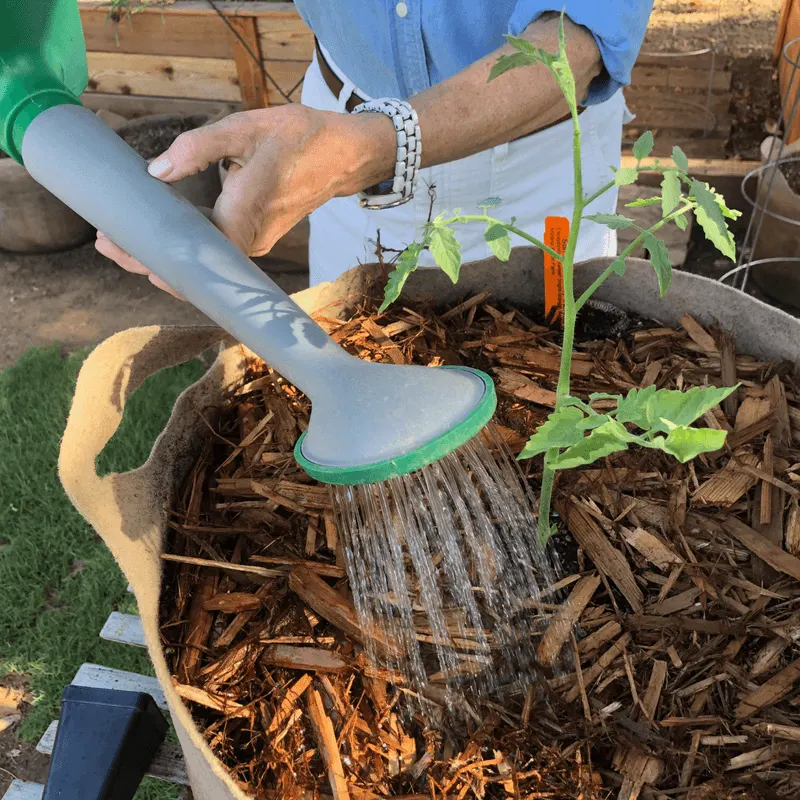
Moisture is key to maintaining an active compost pile. However, it’s a delicate balance. Too dry, and decomposition slows to a crawl; too wet, and it becomes a slimy mess. Aim for a consistency akin to a wrung-out sponge. Checking moisture levels regularly can make a world of difference. A simple touch test can guide you—if it feels dry, add water; if soggy, mix in dry materials. This mindful approach keeps your compost in the sweet spot of activity and efficiency.
Use a Compost Thermometer
Temperature is a telltale sign of compost health. A compost thermometer takes the guesswork out, allowing you to monitor conditions precisely. Higher temperatures indicate active decomposition and a thriving microbial community. If it cools down, it’s time for adjustments—like turning the pile or adding more greens. This tool provides insights into your compost’s progress, helping you tweak conditions for optimal speed. It’s a scientific approach that pays off, turning your organic waste into gold in half the time.
Introduce Compost Boosters
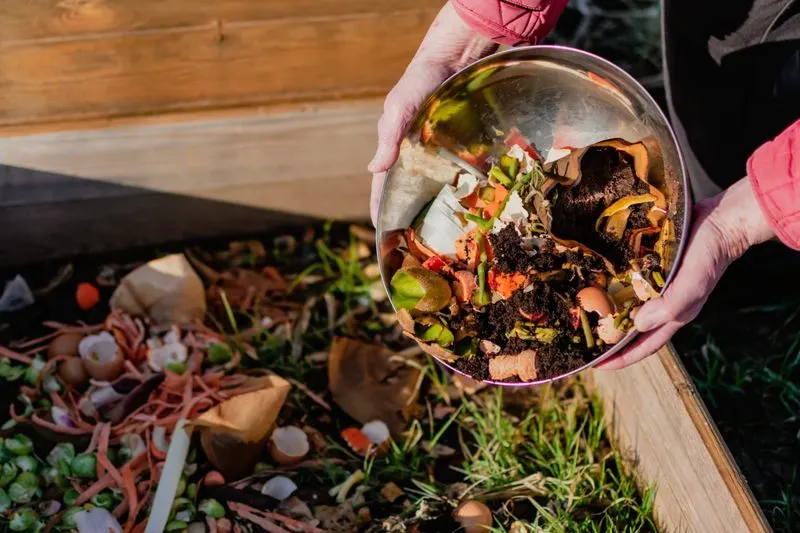
Compost boosters are like energy drinks for your pile. These products contain enzymes and nutrients that stimulate microbial activity, speeding up decomposition. Whether it’s a store-bought mix or homemade remedies like aged manure, they give your compost that extra kick. Using boosters can be especially helpful in colder climates, where decomposition naturally slows. A little sprinkle can make a big difference, turning sluggish piles into hotbeds of activity. It’s a secret weapon for those looking to double their composting speed.
Shred Paper and Cardboard
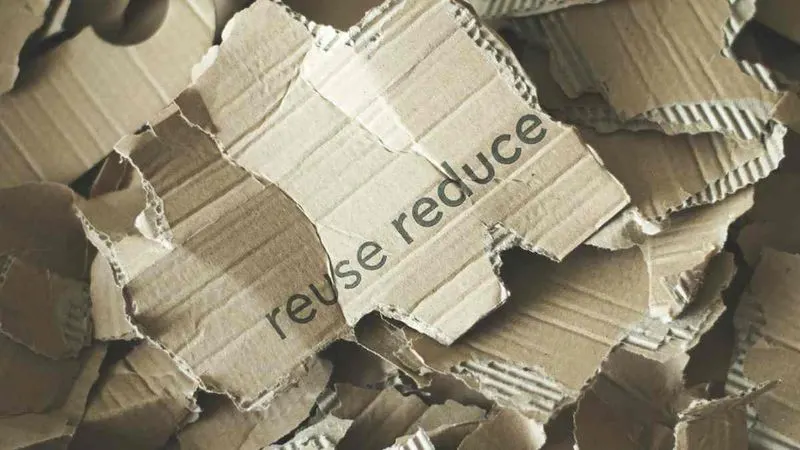
Don’t overlook the power of shredded paper and cardboard. These materials, when added in moderation, provide carbon and help balance wet and dry components. Shredding them increases surface area, aiding faster breakdown. They also help absorb excess moisture, keeping your pile from becoming too soggy. This trick is particularly useful during rainy seasons, offering a simple solution to waterlogged compost. Plus, it’s an excellent way to recycle and reduce waste, making it a win-win for you and the environment.
Limit Meat and Dairy
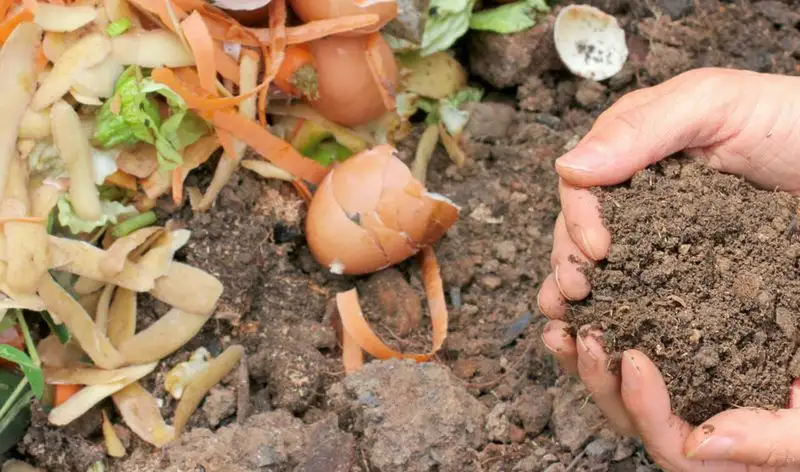
While it might be tempting to toss all food scraps into your compost, meat and dairy should be avoided. These items not only attract pests but can also slow down the decomposition process. They produce odors and require more effort to break down, creating an imbalance in your pile. By keeping them out, you ensure a cleaner, faster composting process. It’s a simple rule with significant benefits, promoting harmony in your compost ecosystem. Stick to fruit and veggie scraps, and enjoy the results.
Incorporate Coffee Grounds
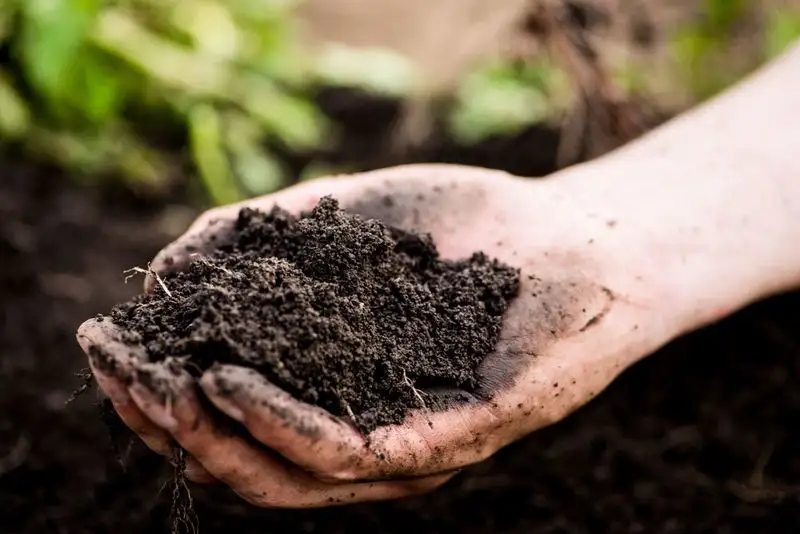
Coffee lovers, rejoice! Your morning ritual can aid your compost. Coffee grounds are rich in nitrogen, providing the necessary fuel for microbial activity. They also improve soil structure and offer a mild pest deterrent effect. It’s a sustainable way to make use of waste that would otherwise end up in a landfill. Add them in moderation, as too much can create acidity issues. Combined with other organic materials, coffee grounds contribute to a thriving, efficient compost pile. A caffeine boost for your garden!
Avoid Pet Waste
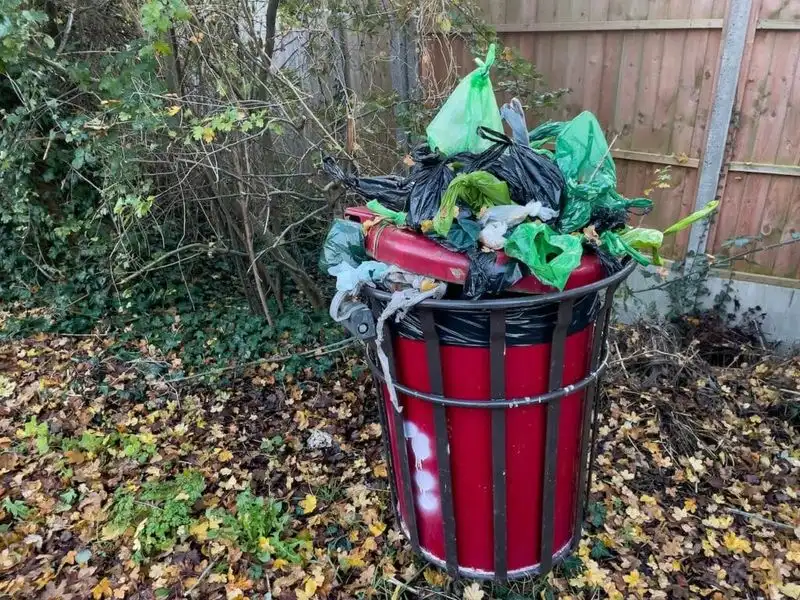
Though it might seem convenient, adding pet waste to your compost is not advisable. It can introduce pathogens that pose health risks, especially if the compost is used on edible plants. Besides, pet waste takes longer to decompose and can spoil the balance of your pile. Keeping it out ensures a safe, efficient composting process and a healthier garden. It’s a simple precaution that pays off in the long run, maintaining the integrity and speed of your composting efforts.
Select the Right Bin
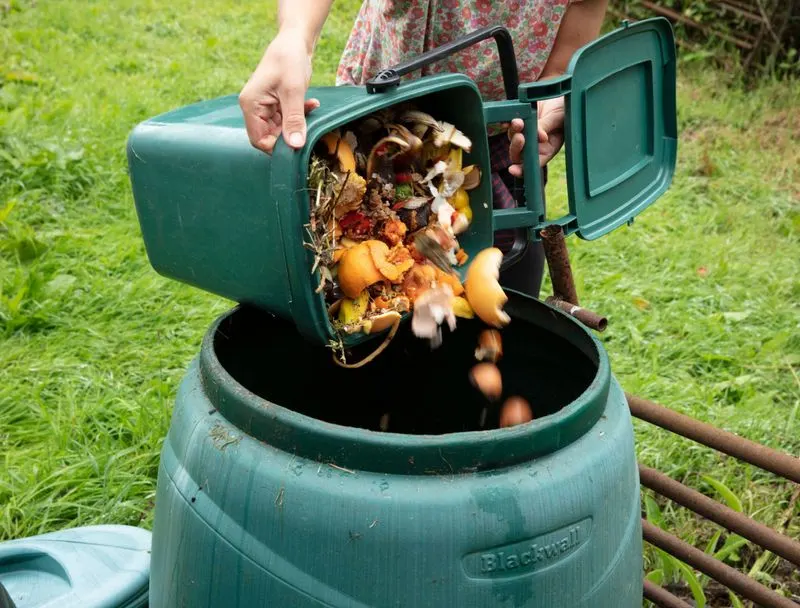
Choosing the right compost bin can make a world of difference. A good bin provides adequate aeration, retains moisture, and fits your space and lifestyle. Tumblers, for instance, offer ease of turning, enhancing aeration and speeding up decomposition. Stationary bins might suit those with larger spaces looking for simplicity. The key is to match the bin type with your composting habits and goals. Investing in the right bin sets the stage for success, giving your compost the environment it needs to thrive.
Balance pH Levels
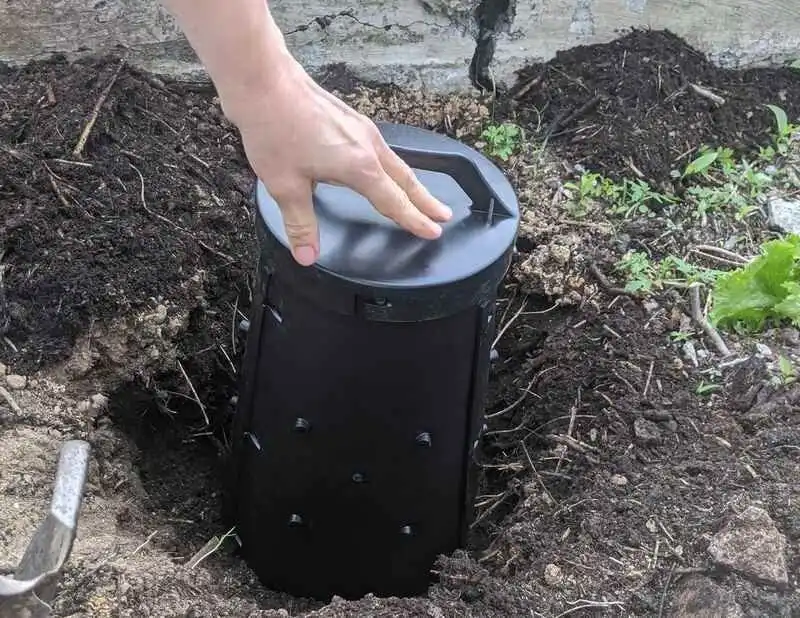
Maintaining the right pH level in your compost is crucial for efficiency. A neutral pH supports a diverse microbial community, which enhances decomposition. If your pile becomes too acidic, lime can be added to bring it back to balance. Regularly testing pH ensures your compost stays on track, transforming waste into nutrient-rich soil at an optimal pace. It’s a small effort with a substantial payoff, keeping your compost healthy and active. A pH-balanced pile is a fast-working pile.
Utilize Natural Insulation
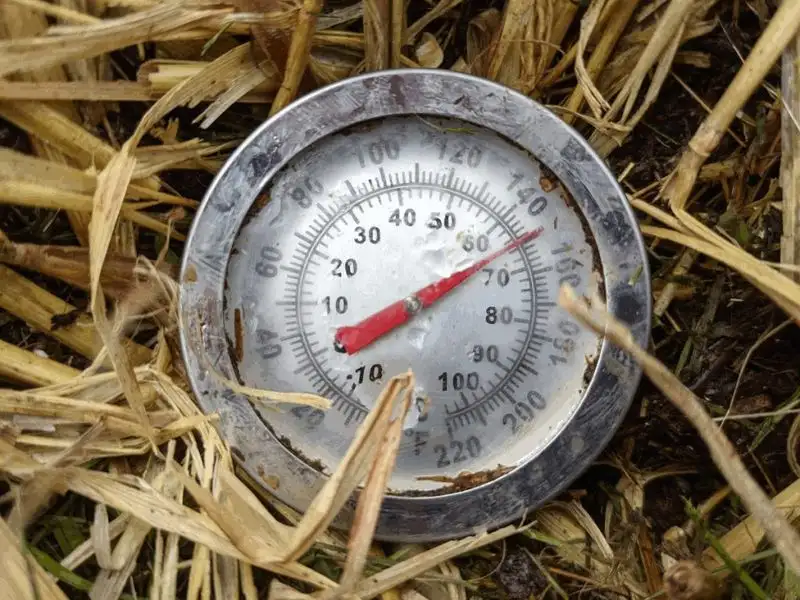
In colder months, composting can slow down significantly. Using natural insulation like straw or leaves helps maintain warmth, promoting microbial activity. It creates a microenvironment where decomposition continues despite external temperatures. This method also protects your pile from excess rain, preventing waterlogging. Simple and effective, insulating your compost keeps it working year-round, even when the chill sets in. It’s an age-old technique that remains relevant, ensuring your compost bin remains productive through any season.
Add Crushed Eggshells
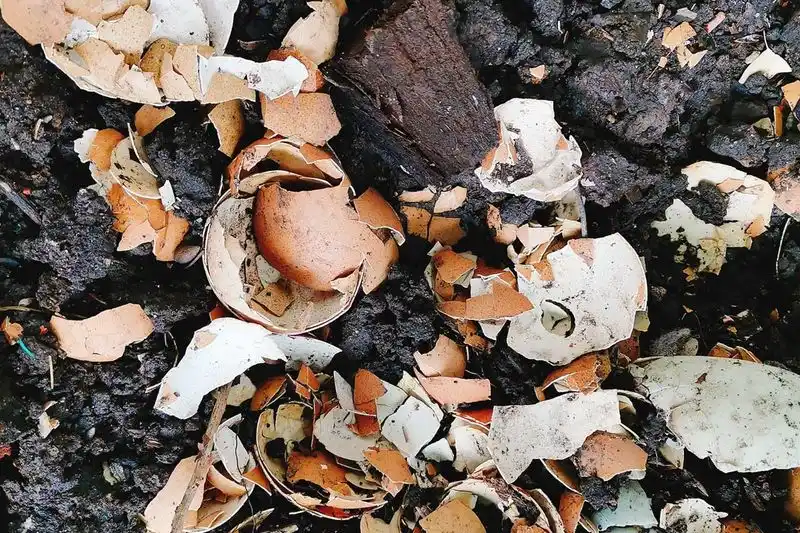
Eggshells are more than just kitchen waste; they’re a valuable addition to your compost. Rich in calcium, they help balance pH and improve microbial conditions. Crushed shells break down faster, integrating into the compost mix efficiently. This natural amendment enhances soil quality, providing a subtle boost to the composting process. It’s a simple, sustainable practice that enriches your compost, supporting a healthier garden ecosystem. Plus, it’s a great way to repurpose what might otherwise be discarded.
Start with a Base Layer
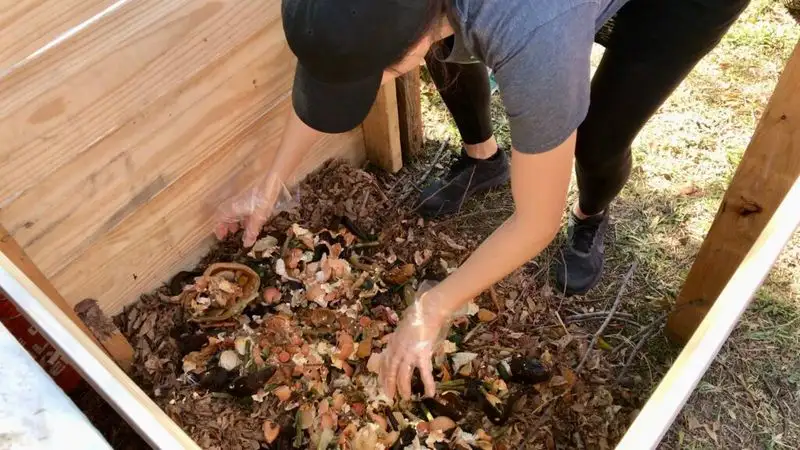
A solid base layer sets the foundation for effective composting. Using coarse materials like twigs or straw encourages aeration, preventing compaction and promoting drainage. This layer acts like a filter, ensuring excess moisture doesn’t stagnate at the bottom. It’s an often-overlooked step that significantly impacts the speed and success of your composting efforts. Establishing a robust base creates the perfect environment for decomposition, allowing microbes to thrive and your compost to develop efficiently.

